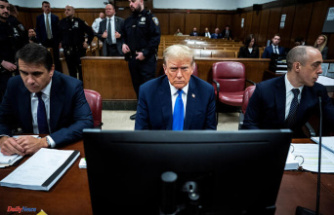Osthafen or wall system, that is the question. The search for a suitable plot of land for the construction of a new Urban stage is compressed in two areas. This is not only in the literal sense, a direction of the dispute. The two most powerful factions in the Roman come to the topic to each other.
Rainer Schulze
editor in the Rhein-Main-Zeitung.
F. A. Z.The CDU party holds the Osthafen is particularly suitable. They called two Central arguments: Were built in both venues there, saved the city about 70 million euros for the construction of more expensive alternate quarters. Just a day after in drama and Opera on Willy-Brandt-Platz the last curtain would fall, could be opened in the new buildings at the East harbour. Can't go on with all the other variants, because, you see, that at least one venue at the Willy-Brandt-remains in place. There is at least one alternative accommodation would be necessary.
For a construction of the two new venues in the Eastern harbour, a plot of land next to the honsell bridge, in question, belongs to the second important Argument of the CDU – the city already. The area is leased until 2028 to the building materials trade, Raab-Karcher, offers at this point, in two large halls, faucets, bathtubs, tiles and other floor coverings. The company does not want to move. But the city could access after the expiration of the lease on the property, confirmed Michael Gunter village, the head of the staff unit "future of the Urban stage". He thought, however, it is desirable to start earlier with the construction. In the case of a construction period of around seven years, the stage would otherwise be only 2035 done – the old double system of the Willy-Brandt-Platz would probably be the limits of their capacity. For Raab-Karcher, the city would need to provide, however, a replacement plot of land, which would be associated with additional costs.
Either the port, or stages
The CDU group believes, however, that your option costs the least. "We should implement the solution that is best," says the cultural policy spokesman Thomas Dürbeck. An investment of around 800 million euros in the construction of the Opera and the theatre would give the frankfurters are already hard to come by. Also within the cultural scene, and there was jealousy and friction: "Many cultural workers make to the end of that for them nothing remains", says Dürbeck. He says that the investment must remain in a "reasonable measure", so that also for other institutions, enough funds were left over.
But the SPD parliamentary group Chairman Ursula Bush in power, the CDU is a thinking error to the attention of: economic Affairs, Markus Frank (CDU), holding steadfastly to a commercial use of the osthafen harbour. With the construction of public culture is initiated buildings, but commonly an urban transformation of an area. That was when the Museum embankment and in the case of the Elbphilharmonie in Hamburg also. For years, discussing the conversion of the port into an urban residential and mixed - use area, but the CDU parliamentary group has granted this idea only recently, again a rejection. "That in itself is not conclusive. You can't have both: Either you get the port, or to build the stage,“ says Busch. In addition, the stages were in the city centre.
"the culture mile" to the wall installations
Dürbeck, in turn, uses the opportunity of the SPD parliamentary group preferred variant of the bad persuasion. The coalition partners, is pursuing the idea of a "culture mile" to the ramparts: The Opera is supposed to get built on the Site of the Frankfurter Sparkasse Neue Mainzer Strasse, while the theatre building is a new building at Willy-Brandt-Platz. At least the Theater would have to relocate during the construction period, in an expensive temporary quarters.
But that is not the only obstacle: the savings Bank-occupied property is not part of the city, but the Bank or your mother-report by the Helaba group. Head of cultural Affairs, Ina Hartwig (SPD) is hoping that the city can use the land for comparatively little money, if the Helaba would be quasi in return for planning permission for a high-rise building on a part of the area. Dürbeck thinks it's unrealistic. "The land costs are in addition to the construction costs," he says. In the face of the land value of 22,000 Euro indicative in this situation, he expects a price of around 100 million euros for the area. "That would be on top."
Date Of Update: 23 July 2020, 12:21











